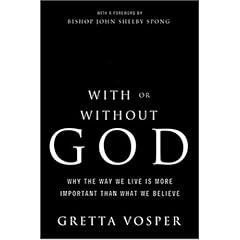It's going to get interesting. It is my opinion that we will see gay activists targeting Christian businesses with lawsuits in order to change the face of American Christianity. It is also my opinion that they will mostly succeed - except for that "remnant".
~~~~~~~~~~
New Mexico
...a New Mexico court decides against a Christian photographer who opted not to photograph a lesbian wedding.
After Huguenin told them she only photographed traditional marriages, the couple filed a complaint for discrimination against their sexual orientation.
The case was taken before the New Mexico Human Rights Commission, which heard the case in January.
This will end up affecting many Christian small business owners that rub shoulders with the marriage "industry". Flowers, photographers, seamstresses, caterers, cake bakers.
Gay activists are not above deliberately targeting Christians in order to sue and set precedents in the court system.
In another story, "Legally Speaking: Through a Lens, Darkly" the point is made that there are civil rights at stake: the rights of the photographer.
~~~~~~~~~~
California
...A lesbian couple sues a fertility clinic
This is disputed by Kenneth Pedroza, the attorney for the two doctors. He said they clearly informed Benítez that their religious beliefs applied to unmarried women and treated her no differently than any other single woman seeking treatment at the clinic.
"Freedom of religion absolutely protects all of their conduct in this case," he said. "There are two areas in medical care where freedom of religion is invoked most clearly: in the creation of life and the termination of life." And just as patients have rights, he said, so too do doctors.
Jennifer C. Pizer, a lawyer with the gay rights group Lambda Legal who is representing Benítez, said that while the law protects doctors who refuse certain treatments on religious grounds, it does not allow them to do so on a discriminatory or selective basis. In other words, when doctors refuse a treatment, their refusal must apply to all patients -- not to a group, such as unmarried women or lesbians.
~~~~~~~~~~
San Diego
Employees who refuse to perform gay wedding ceremonies at the San Diego County Clerk's Office are facing reassignment. At least 14 employees who raised religious objections to performing same-sex weddings have been told they cannot pick and choose between marriage applicants. California began gay marriages this week. Clerk Greg Smith had told workers earlier that those who object on religious grounds wouldn't have to perform the ceremonies, but 14 employees balked and that was more than his office could accommodate.
~~~~~~~~~~
Maggie Gallagher asks:
But hey, if the word "marriage" can be redefined as a civil rights imperative, why balk at lesser ideas like "monogamy" or "fidelity"?
She notes in her article:
For example, redefining "infidelity." Back in the '90s, when Andrew Sullivan first suggested gay couples had a thing or two to teach opposite-sex couples about our rigid insistence on sexual fidelity, public reaction was so negative that he recanted (and to this day he gets mad if you even mention he said it!).
But from the new-won confidence of his legally recognized gay marriage in Massachusetts, Eric Erbelding is quite comfortable explaining to The New York Times: "Our rule is you can play around because, you know, you have to be practical." Eric says most married gay couples he knows are "for the most part monogamous, but for maybe a casual three-way."
For the most part ... except for the casual three-way?
"faithful" does NOT mean the same thing to gay people as it does to heterosexuals.
What about the next step: "Could churches in time risk their tax-exempt status by refusing to marry gays?"
Here's what the gay newspaper of record thinks: "That remains to be seen and will likely result in a steady stream of court battles."
~~~~~~~~~~
Gay trumps Christian.And we will see more.

 "God does not answer our prayers. Jesus is not the saviour who saved the world by dying for our sins. Simply put, Christianity is “love one another.” Gretta Vosper, founder of the Canadian Centre for Progressive Christianity and a minister in Toronto, believes that the church, as we have built it and known it, has outlived its viability." (Amazon.ca)
"God does not answer our prayers. Jesus is not the saviour who saved the world by dying for our sins. Simply put, Christianity is “love one another.” Gretta Vosper, founder of the Canadian Centre for Progressive Christianity and a minister in Toronto, believes that the church, as we have built it and known it, has outlived its viability." (Amazon.ca)